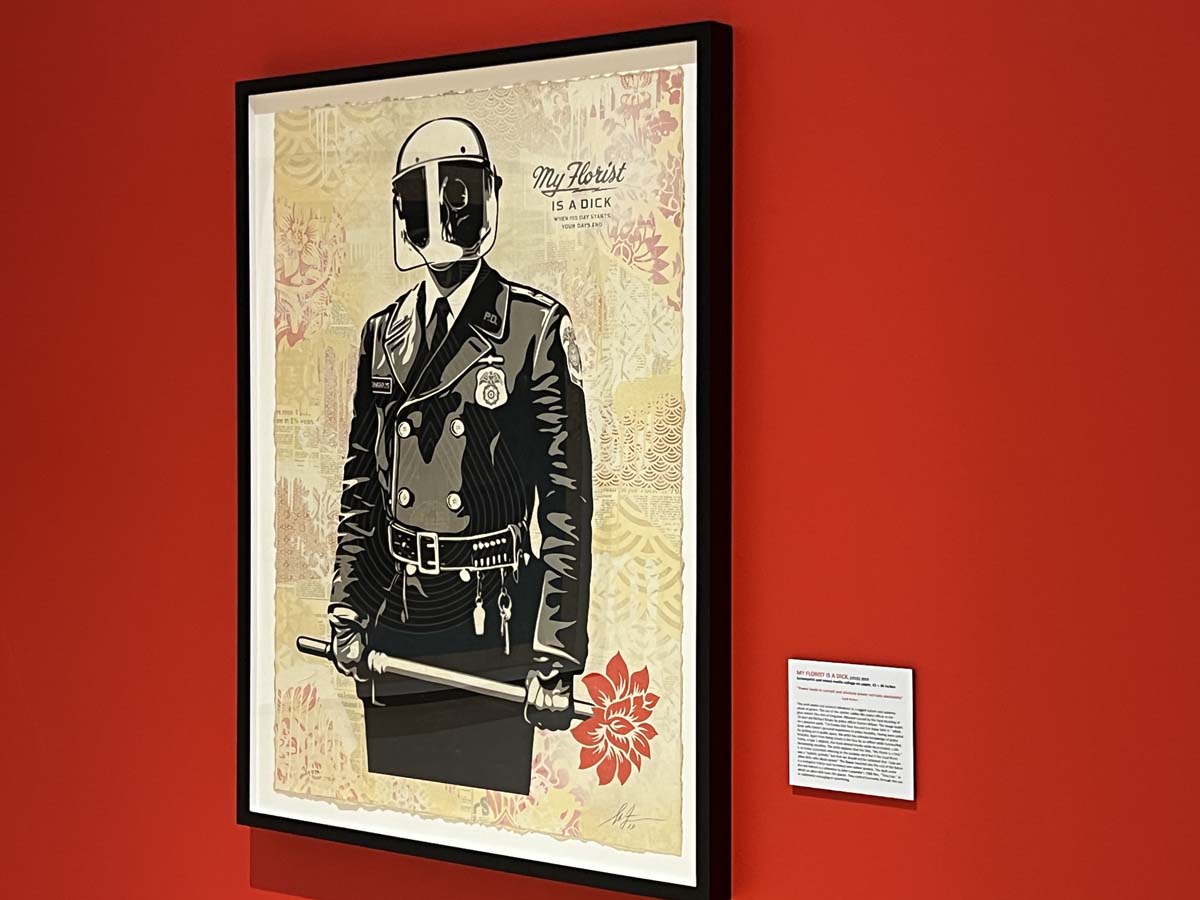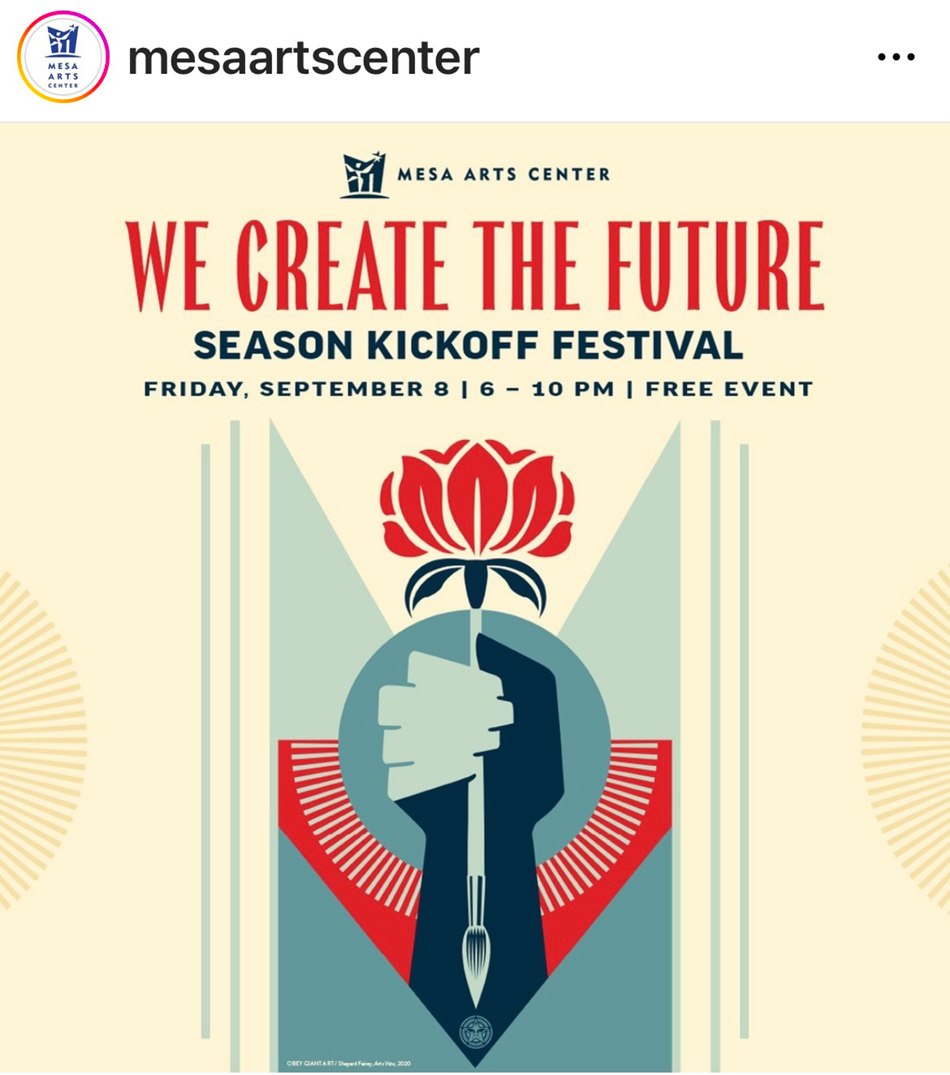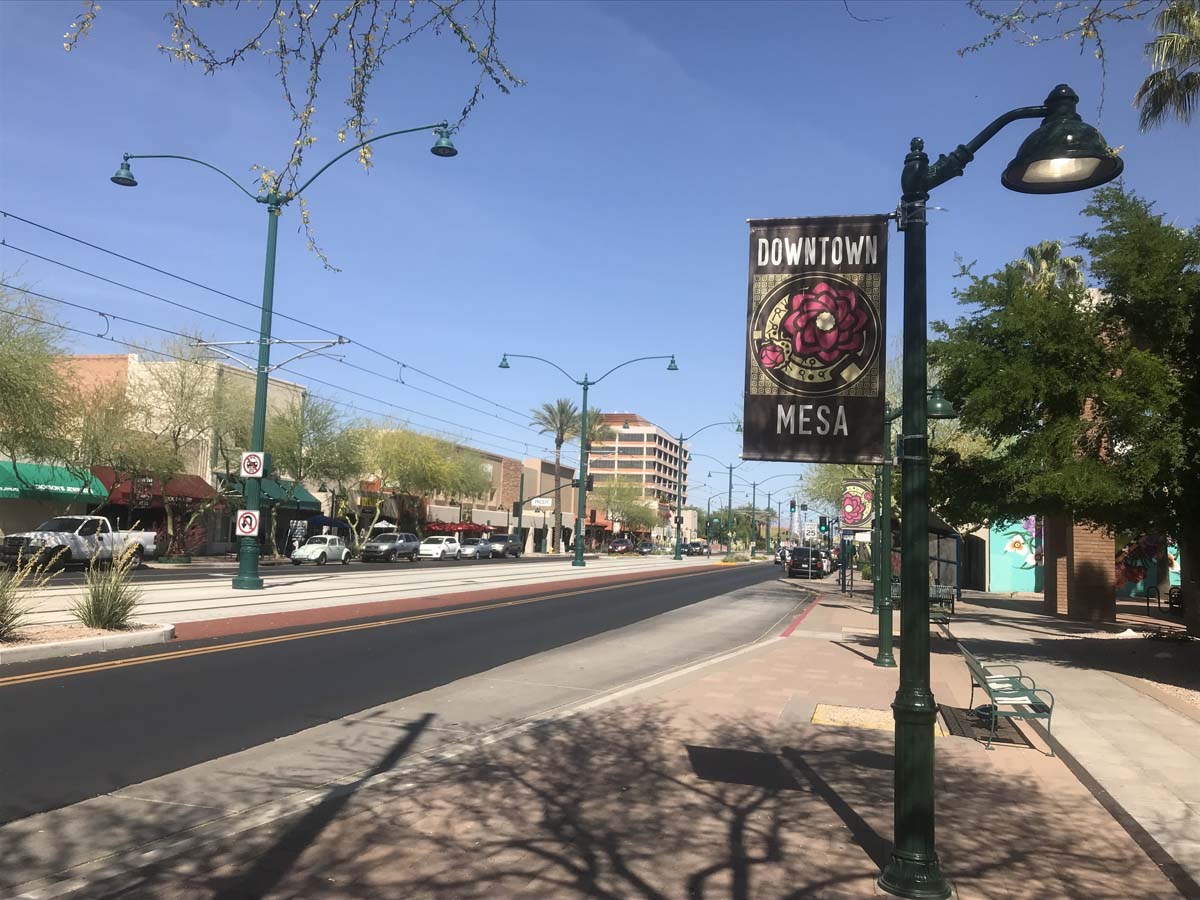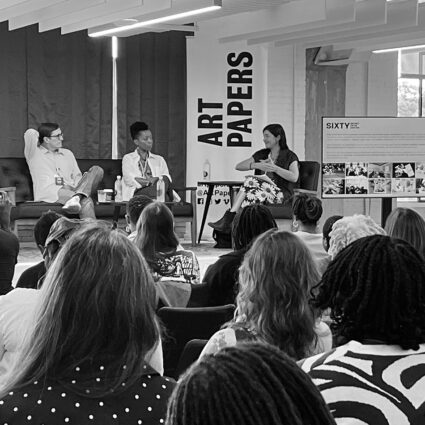Tiffany Fairall, former chief curator of Mesa Contemporary Arts Museum in Arizona, sues the City of Mesa in the aftermath of censorship allegations involving artwork by Shepard Fairey.
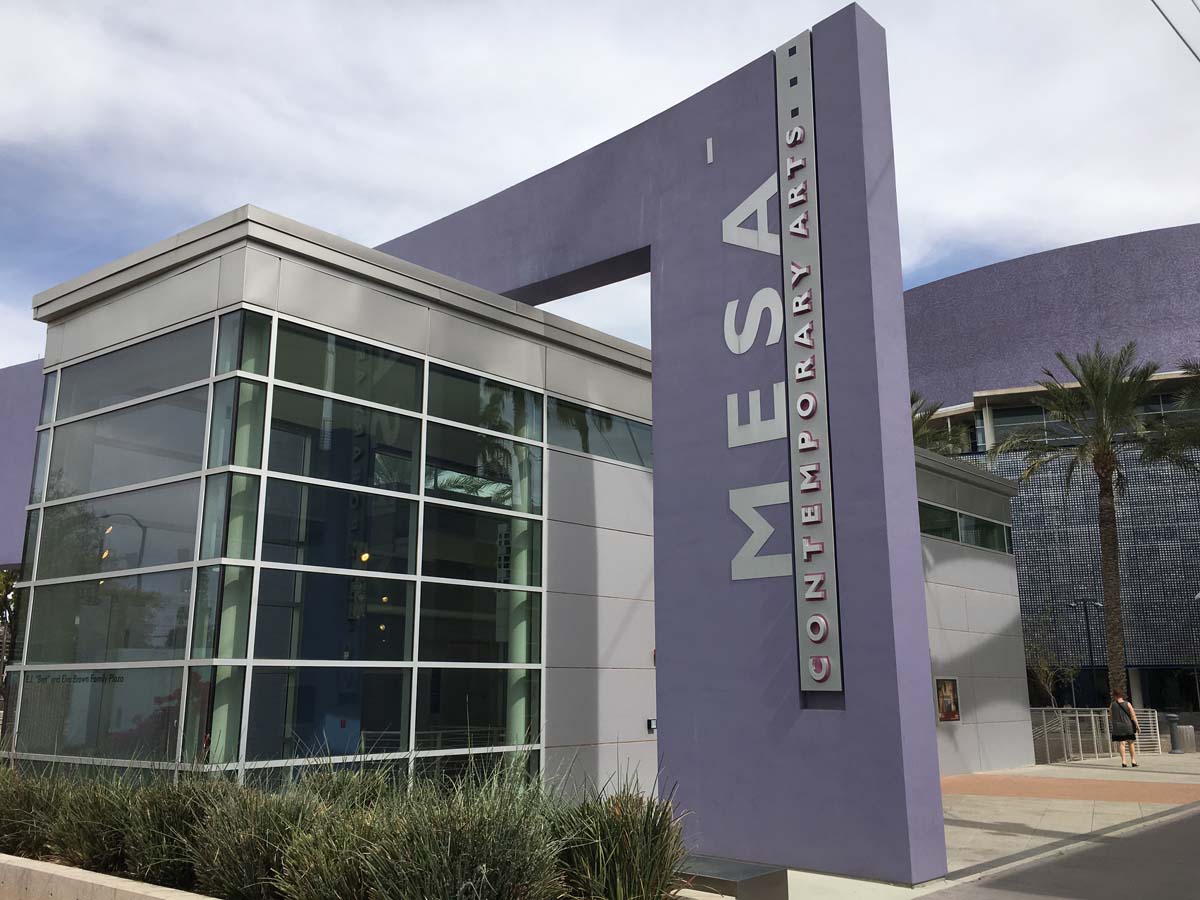
PHOENIX—Tiffany Fairall, former chief curator for the Mesa Contemporary Arts Museum in Arizona, has filed a lawsuit against the City of Mesa in the aftermath of 2023 censorship allegations related to artwork by street artist, graphic designer, and activist Shepard Fairey.
The lawsuit accuses the City of Mesa, which recently garnered national attention when its Republican Mayor John Giles endorsed presidential candidate Kamala Harris, of violating Fairall’s First Amendment rights to free speech.
The filing alleges additional violations of federal law, making it clear that the Shepard Fairey controversy reflects just a small part of Fairall’s concerns about the city’s policies and practices related to artists, curators, and the city-run museum located at Mesa Arts Center.
Thus far, Fairall hasn’t publicly commented on the case.
However, her allegations are outlined in a twenty-five-page complaint that her attorneys filed with the U.S. District Court for the District of Arizona on October 31, 2024. Previously, she’d filed charges of discrimination with the U.S. Equal Employment Opportunity Commission.
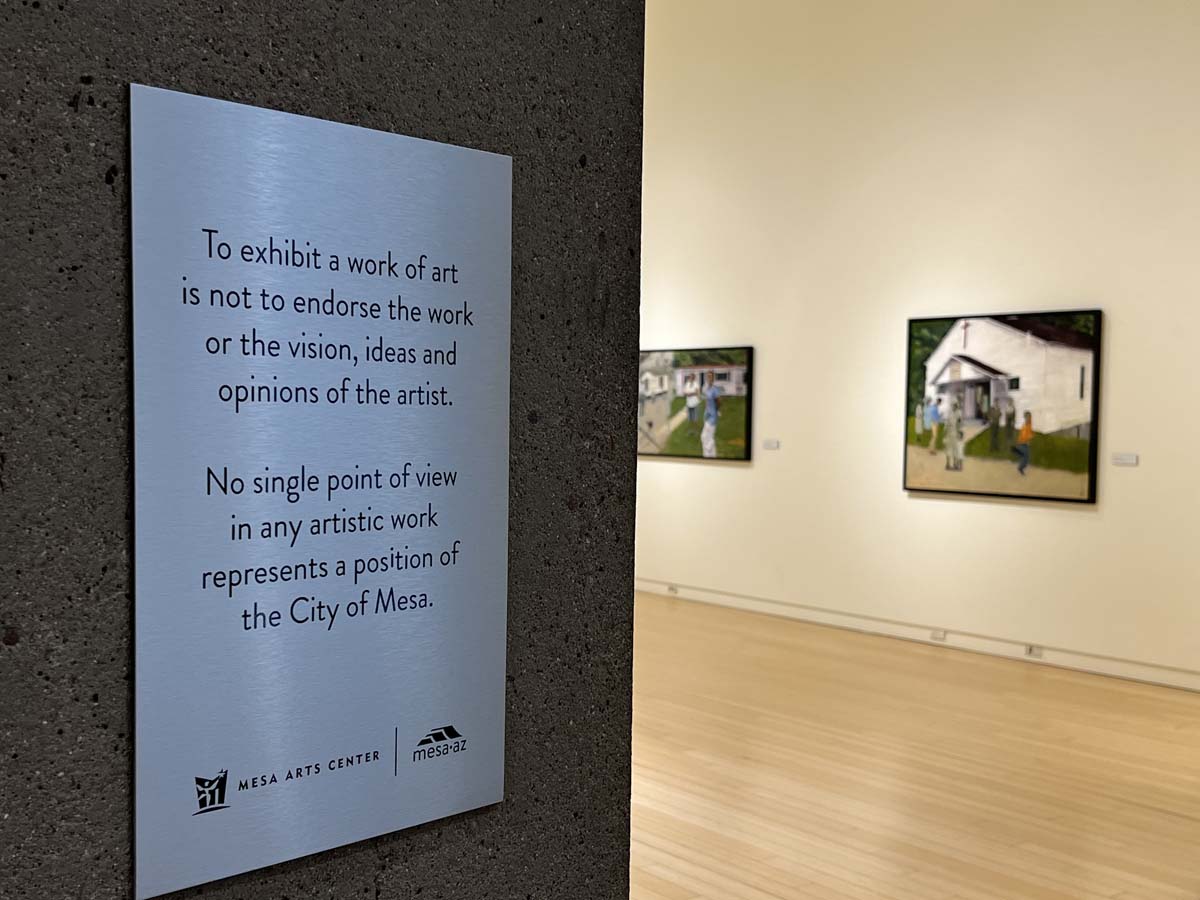
According to Fairall’s lawsuit, city manager Chris Brady wanted her to remove Fairey’s print My Florist is a Dick (2015) from works she planned to show during the artist’s solo exhibition at MCAM because Brady did not want to offend the police, who are city employees.
The color screenprint on paper, which Fairey has stated relates to his own experience of police brutality, pictures a police officer with a skeletal face in riot gear and text that includes the words in its title. In the lawsuit, it’s alleged that Brady “took issue with the word ‘dick’ being included in the title for the artwork.”
Fairall, the plaintiff in this case, has taken exception to the city’s approach.
“Plaintiff thought the directive compromised the integrity of her curatorial practice and was concerned about censoring an artist,” reads a portion of the complaint. “Plaintiff feared that if she allowed this censorship to occur, it would set a precedent disproportionally affecting minority and Black American artists because police brutality, governmental abuse of power, racism, and discrimination” are common topics in their work.
As noted in the lawsuit, Fairall refused to remove the disputed artwork.
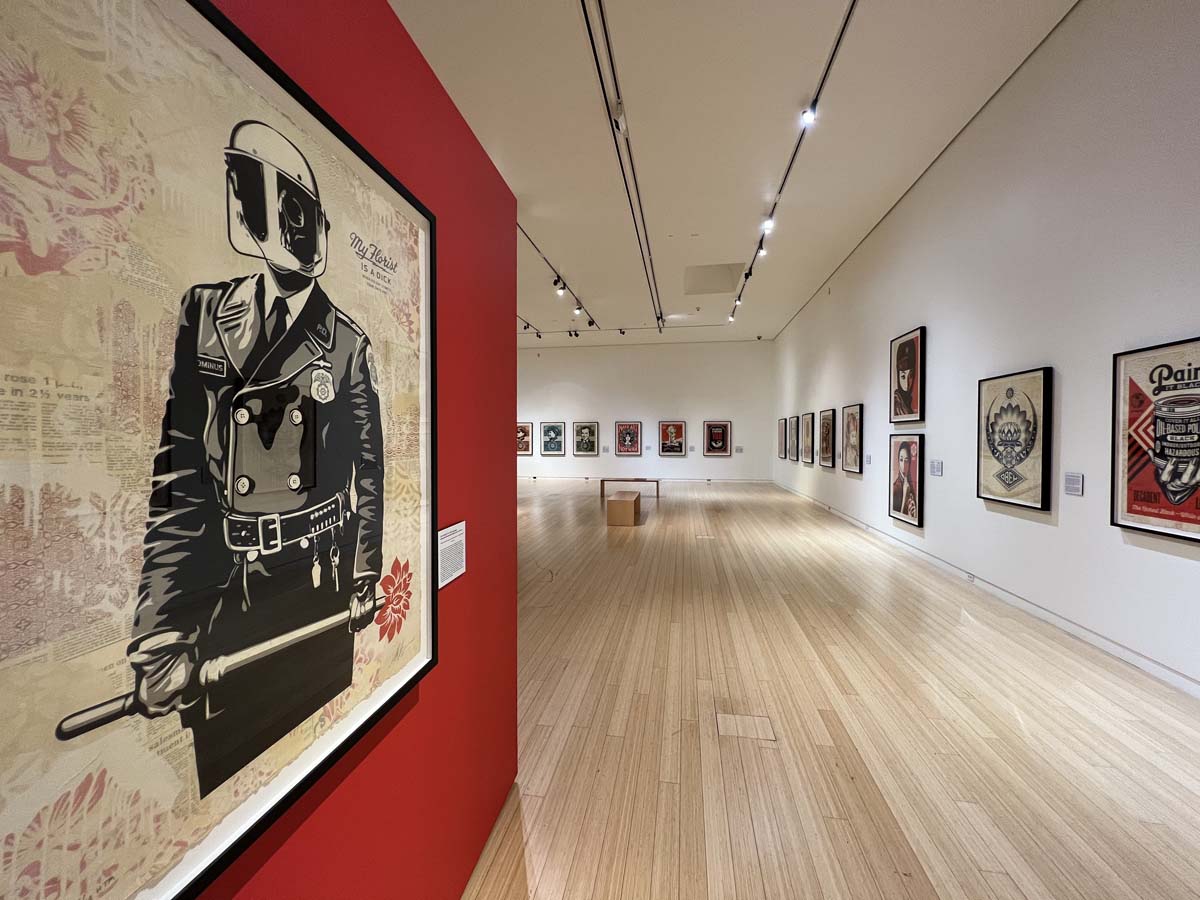
Meanwhile, the National Coalition Against Censorship and ACLU Arizona sent a joint letter to the City of Mesa, demanding that it “uphold free expression” and proceed with the fall 2023 exhibition season without censoring Fairey’s work. Later they’d send a letter urging the city to allow MCAM professionals rather than other city employees to make and implement new museum policies and procedures. Likewise, PEN America published a statement saying the city was setting up “a chilling precedent.”
When Southwest Contemporary contacted Elizabeth Larison, director for the arts and culture advocacy program at the National Coalition Against Censorship, she replied that the organization is “unable to comment on this recently filed case.” However, the language in their joint statement with ACLU Arizona issued on September 12, 2023, clearly opposed greater government control of the arts in Mesa. “The city’s focus on expanding its oversight of the museum signals that future exhibitions at Mesa Art Center will be scrutinized to ensure no artworks challenge or criticize government employees, agencies, policies, and initiatives, essentially limiting the Mesa Art Center’s offerings to works that help bolster the city’s image and its attendant PR strategies,” it reads in part. “This is not supporting ‘art and speech in all forms.’ Measures like these will threaten to turn Mesa’s contemporary art museum into a government-sanctioned propaganda center.”
Ultimately, the artwork in question was included in Fairey’s Facing the Giant: Three Decades of Dissent exhibition at MCAM, which ran from October 7, 2023, to January 21, 2024.
But the saga didn’t end there.
As Southwest Contemporary previously reported, the city ended up postponing the opening of the museum’s fall season by a month. And two Indigenous artists, Douglas Miles (San Carlos Apache, Akimel O’odham) and Thomas “Breeze” Marcus (Tohono O’odham), didn’t present solo exhibitions at MCAM as planned. According to the complaint, city officials told Fairall she couldn’t communicate with artists or the media about what transpired.

The legal filing alleges other fallout, including harm to Fairall’s professional reputation, mental and physical health, and employment status—referencing violations of her rights under the Fourteenth Amendment, the Americans With Disabilities Act, and Title VII of the Civil Rights Act of 1964.
According to the lawsuit, the City of Mesa terminated Fairall’s employment in mid-May of 2024 as retaliation for engaging in free speech activity, including sharing her concerns about “censorship, race-based discrimination, and gross mismanagement” with the city.
The filing also alleges that the city questioned or criticized curatorial choices for other exhibitions at MCAM—not just the Shepard Fairey show.
According to the lawsuit, the city’s response to that show included telling both Fairall and her supervisor Cindy Ornstein that the museum’s exhibitions were ‘too liberal’ and needed to be more ‘neutral.’
Consider the case of Human Contrasts, a show guest curated by Clottee Hammons of Emancipation Arts during the museum’s 2020-2021 season, which addressed topics such as “discrimination, disparate treatment, racism, police brutality, and governmental abuses of power.”
According to the lawsuit, the city’s response to that show included telling both Fairall and her supervisor Cindy Ornstein, then director for Mesa’s arts and culture department, that the museum’s exhibitions were “too liberal” and needed to be more “neutral.”
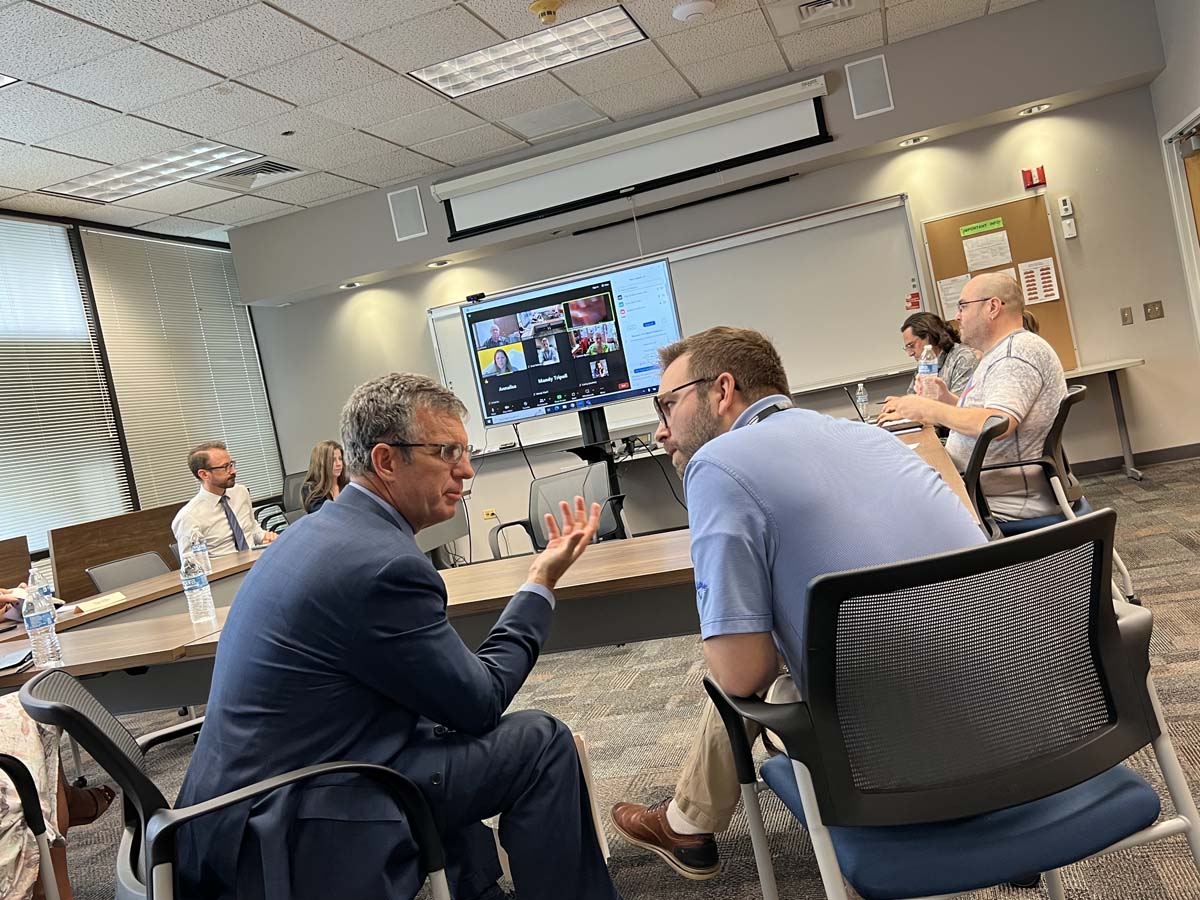
Also of note, the filing alleges that Fairall was told during a July 2022 performance evaluation not only that her “selections and decisions” regarding Human Contrasts should have been more circumspect, but that the reactions of police and other city employees to the exhibition could threaten museum funding.
The filing alleges that Fairall was told that the reactions of police and other city employees to the exhibition could threaten museum funding.
Similarly, the lawsuit alleges that the city questioned why two works in particular were important to the curatorial vision for Just Cause: The Power of Contemporary Art, a group show examining homelessness, civil rights, social justice, gender inequality, climate change, immigration, and civic liberties. The exhibition ran during the same season as Fairey’s show.
In the complaint, Fairall further alleges that the city expressed concerns about an image Fairey authorized the museum to use for its fall 2023 season kick-off event poster, consisting of a modified version of his Arts Vote graphic created for an Americans for the Arts Action voter education initiative. The image features a raised fist holding a lotus flower. According to the complaint, “Defendants were concerned that it looked like a Black Lives Matter movement’s raised, clenched first.” Interestingly, the lawsuit also alleges that Fairall was chastised in June 2020 for wearing a Black Lives Matter t-shirt on a Zoom call for work.
Beyond that, the lawsuit addresses changes suggested or made to museum policies and practices based on subject matter concerns.
One section says the city revamped its artist contracts and curation procedures to increase city control over what’s shown at the museum. The lawsuit alleges, for example, that the city changed its artist contracts to include a provision about city rights and government speech, which reads as follows: “Lender acknowledges and agrees that the City will make all final editorial and curatorial decisions…”
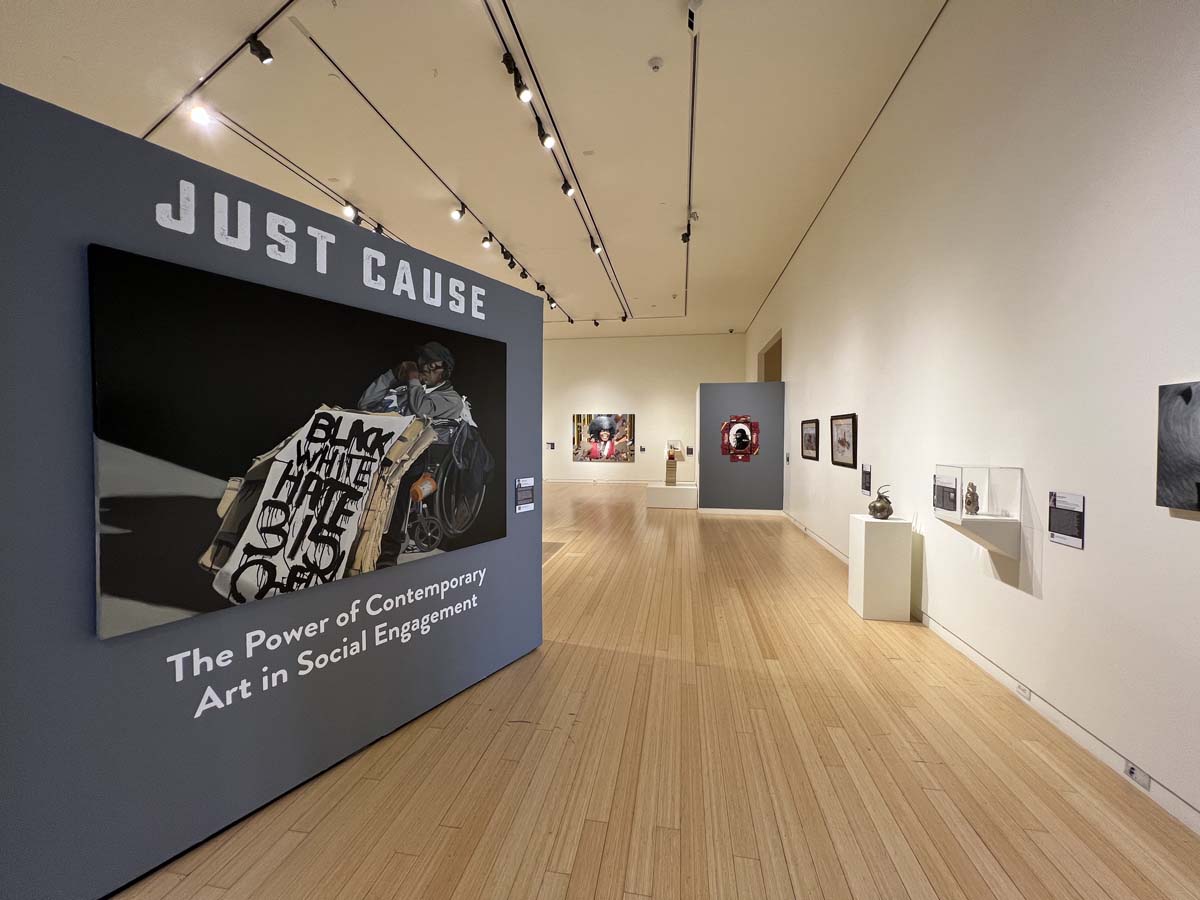
Another section notes that the city posted pro-police language at the museum during Fairey’s exhibition, and added museum signage stating that showing a work of art does not constitute the city’s endorsement. The latter was also displayed during subsequent exhibitions, by the way, including Materializing Mormonism: Trajectories in Contemporary Latter-day Saint Art earlier this year.
Defendants named in the lawsuit include city manager Chris Brady, whose contract was renewed with an annual salary of $350,000 by the Mesa City Council not long after the Shepard Fairey debacle, and Richard Parison, Jr., who briefly served as head of Mesa’s arts and culture department in early 2024. Parison’s tenure ended in June, around the time he was arrested on suspicion of disorderly conduct and assault.
Illya Riske, who is currently the acting director for the department, and Mandy Tripoli, who was named executive director for Mesa Arts Center in October 2024, are also defendants in the case. Other defendants include deputy city manager Candace Cannistraro and former deputy city manager Natalie Lewis.
Southwest Contemporary contacted the City of Mesa on November 1 to request comment on the lawsuit. A city representative responded by email on November 4, writing the following: “Regarding Friday’s request for comment, we are going to abstain since litigation is pending.” The magazine has also reached out to Shepard Fairey and Cindy Ornstein for comment.
Fairall is seeking several judgments, which vary among the six counts in the lawsuit and their respective defendants. Collectively, these remedies include monetary, compensatory, and punitive damages, among others. The pleading also calls for Fairall to be reinstated to her former position at the museum or awarded front pay.
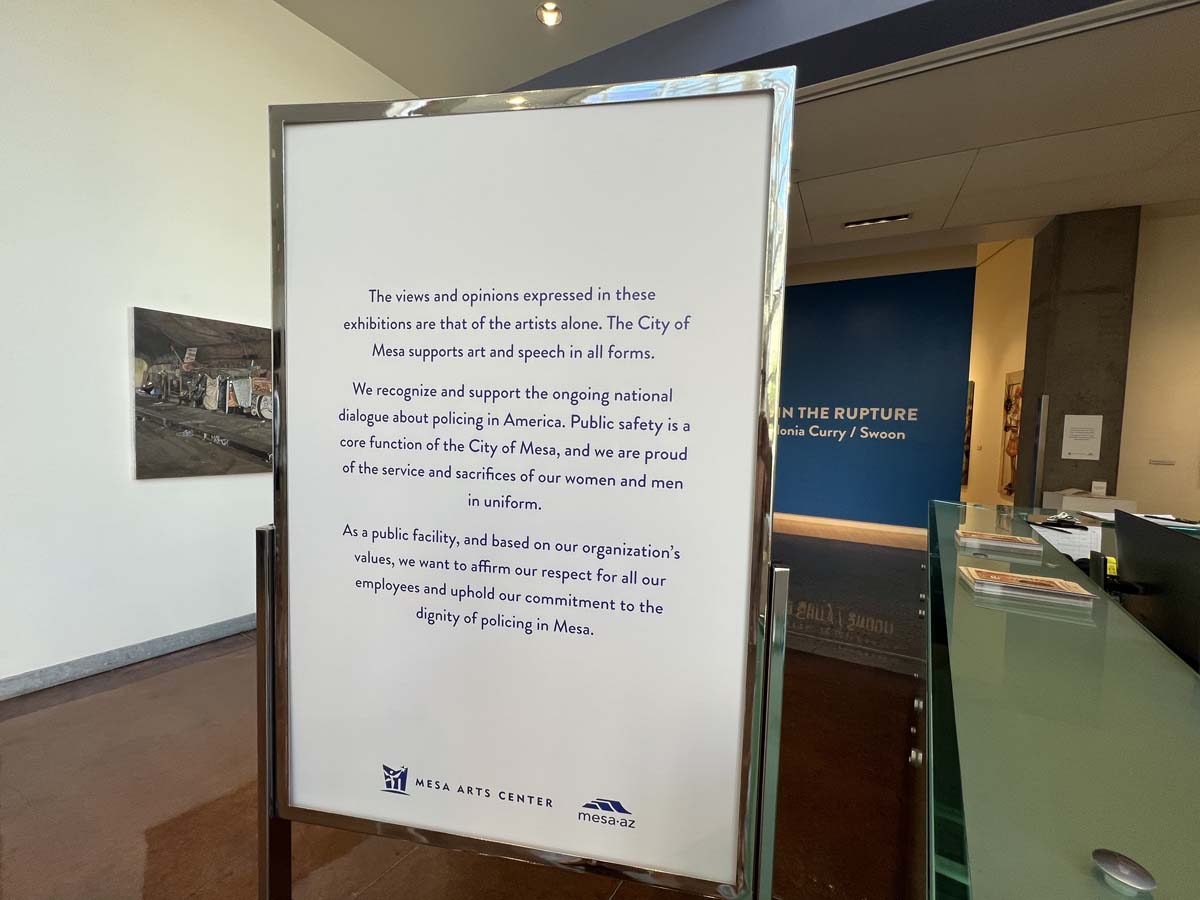
The city, like other defendants, will have twenty-one days to file its response with the court once it is officially served with the complaint, which states that the plaintiff wants a jury trial.
The wider context for this litigation includes allegations of racism, sexism, censorship, and retaliation happening around the country in myriad spheres of contemporary life—including schools, libraries, and art spaces.
In October 2024, the ACLU of Colorado filed a lawsuit against the city of Vail, Colorado, on behalf of Danielle SeeWalker, a Húŋkpapȟa Lakȟóta artist whose residency with the city’s Art in Public Places program was allegedly canceled after she posted her personal views about the war in Gaza on social media. Also in October, the Wall Street Journal reported that leadership for the U.S. National Archives plans to de-emphasize complicated parts of U.S. history in new exhibitions.
It’s all taking place as the City of Mesa continues to experience significant shifts in its arts and culture leadership.
Cindy Ornstein retired in June 2023 after thirteen years heading both the Mesa Arts and Culture and the Mesa Arts Center. Parison was hired to replace her in early 2024 but only lasted five months. Subsequently, Mesa split the two jobs between two people.
Now, the city is working to create a new curatorial team at MCAM, where Mary-Beth Buesgen was named the lead curator in August 2024 after serving as associate curator for just eight months. Also in August, Mesa posted a job listing for the museum’s associate curator position. More than two months later, that job is still posted online.
Editor’s note: This is a developing story which will be updated as warranted.
Update 11/6/2024: Lynn Trimble spoke with Lauren Gilger of KJZZ, the local affiliate of NPR, about the story. Listen to the interview here.
